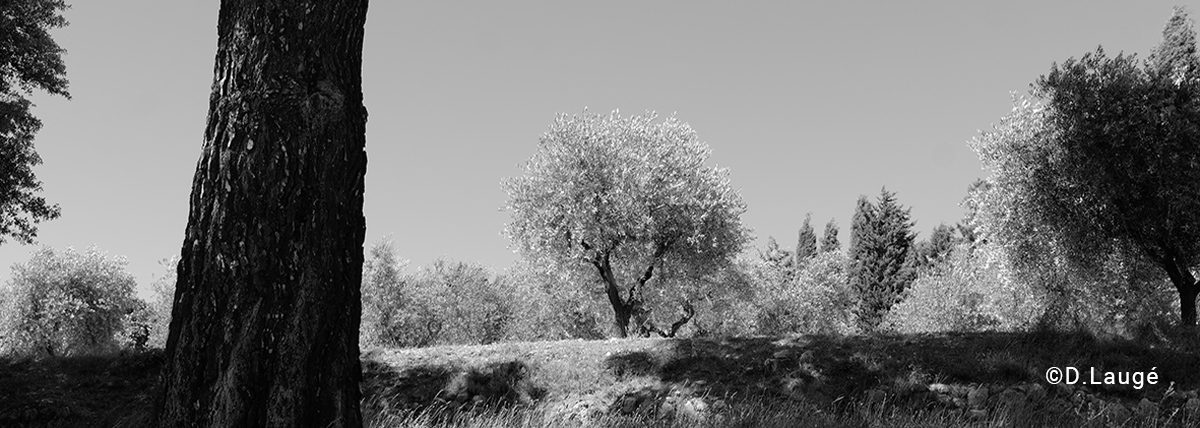
October 2023
Agenda
Seminars and residential studies
Glass routes: exchange system in the medieval world – Seminar organized by Nadine Schibille from October 9 to 14.
This interdisciplinary seminar addresses the social and economic history of glass production in the medieval Mediterranean by studying the diversification of glass production in the 4th century.
It intends to explore how changing geopolitical and socio-economic conditions have affected the diffusion of different glasses from their production centres to consumer sites in the Mediterranean and European regions.
It also aims to evaluate the technological and artistic parameters of secondary glass work in order to understand how the symbolic and aesthetic appeal of the material influenced its specific use and contributed to the development of new techniques and materials.
The Voice Academy – Three centuries of French opera – lyric Master Class organized by Ivan Alexandre and Julien Benhamou from October 23 to 29.
In order of entry on the stage, French singing was the second to reign over European opera, after Italian but before German, Russian or Czech which only imposed themselves thanks to the romantic impulse for “national” expression.
Established by Louis XIV in 1669, inaugurated two years later, French opera did not intend to be national. From its birth it was a genre in itself, coded but universal. A multiple art inherited from both aristocratic ballet and tragic declamation. Dance, energy, fantasy, elocution mingle in lush settings.
In any case, this is how our art established itself from Pomone to Saint-François d’Assise, expanded according to fashions and influences, but perpetuated by Rameau, Grétry, Berlioz, Gounod, Bizet, Massenet, Debussy, Poulenc and the others.
It is this art, delicate and yet strong enough to remain alive three and a half centuries after its invention, that the Voice Academy intends to transmit over the course of a week in Les Treilles, whose guest professor will be the incomparable Annick Massis.
The murderous summer. A history of the siege of Paris (1590) – Small residential study organized by Jérémie Foa from October 9 to 14.
The Deadly Summer aims to tell the story of a major episode at the end of the Wars of Religion, although little known: the siege of Paris in 1590, when Henry IV, Protestant king, tried to force the League capital to yield. With the influx of refugees fleeing the surrounding soldiers, the capital had to feed some 300,000 mouths in the most terrible blockade in Parisian history.
Without food, for four months, between May and September 1590, the locked-up Parisians suffered deprivation, illness, promiscuity and fear. Perhaps 30,000 people died during the siege or in the months that followed. It is this experience, intimate and collective, that the book seeks to restore in a story “at ground level”, as close as possible to contemporaries.
Illustrate the writings of the charters – Small residential study organized by Ghislain Brunel from October 23 to November 4.
The illustration of the documents did not appear by chance and was the result of a long mental process. Thus the medieval writing of the 12th-13th centuries was able to create calligraphic styles and forms of layout which allowed notaries and their clients to create hierarchy between their different productions; but there is currently no inventory of these iconographic motifs and these modes of solemnization of documents.
In the same way, when significant motifs appear on these documents (emblems, human or animal faces, identifiable plants, etc.) from the 1260s, the strong synchrony of these regional phenomena suggests a world of scribes very much in tune with them. with each other, trained in schools capable of generating fashions and models. But these simple motifs (far from the narrow formalism of the production of royal acts) have not been classified and characterized either.
Retracing these shapes, these calligraphies and these layouts, classifying these motifs, and listing these styles of illustration endogenous to a territory, to identify the lines of force, invention and classicism will be the axes of this research work on long-term writing.
The Archives Prize
The jury for the André Gide – Jean Schlumberger Center Archives Prize has chosen Vincenzo Mazza as the winner for his research project on the Jean Schlumberger – Jacques Copeau Correspondence (1905-1949). The birth of two myths: the NRF and the Théâtre du Vieux-Colombier.
The winner will benefit from a cash prize for a period of three months and a month of residency at Les Treilles in 2024.
Creation
Author’s residency
Eugène Ebodé
Born in 1962 in Douala, Cameroon, Eugène Ébodé is administrator of the chair of African literatures and arts at the Academy of the Kingdom of Morocco and professor at Lansana Conté University in Sonfonia, Guinea.
His fictional work presents a diversity of territories, continents and themes. His project tells the life of the young Neapolitan Angelina Salomone. She will fall in love with a young priest, Francesco Saponaro, who returns from Africa where he spent his early years as a priest. This love, first secret then stifled by the two young people, will explode one stormy evening. [learn more]
Photography Prize
Julie Bourges
Julie Bourges weaves her story of women and the sea.
After The Witch’s Hand, inspired by the story of Cécile, a young woman ship’s carpenter in French Catalonia, and Les eaux-fortes, following in the footsteps of the rare female sailor-fishermen, she wishes to open a new chapter of her project in meeting women sailors. Cécile’s story, written in French Catalonia, is the first part of this collection which she was able to continue by producing a new chapter on women sailors-fishermen: Etchings. [learn more]
The composition prize
Tomás Bordalejo
The work of our first winner is part of a true compositional research marked by a constant dialogue with the arts, architecture, town planning, and even philosophy. His project is centered around an instrument with deep Mediterranean roots and a history marked by migration: the mandolin. [learn more]
Applications call
Application forms are still open for:
the 2024 season
– the Young Researcher Prize (until October 31)
– the author’s residency prize (until 31st of December 2023)
